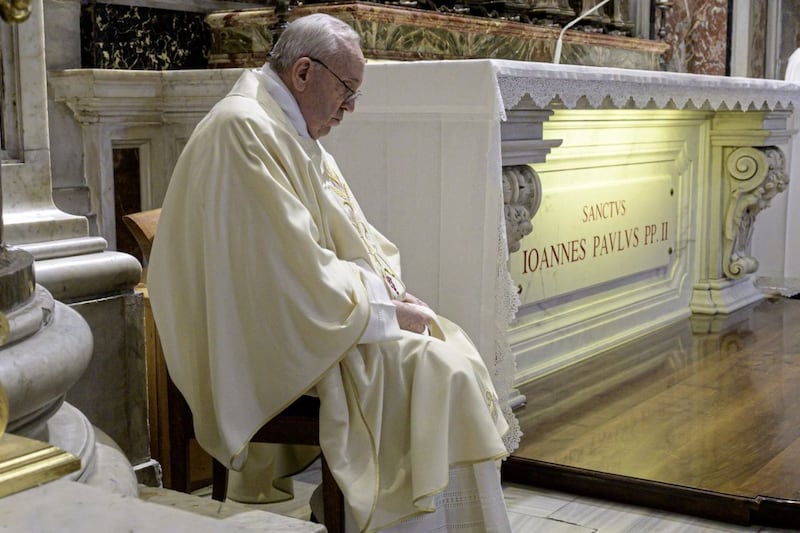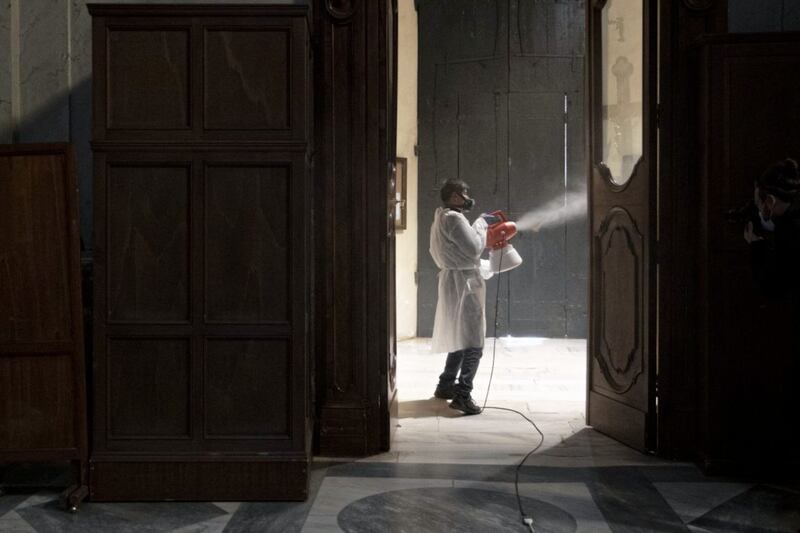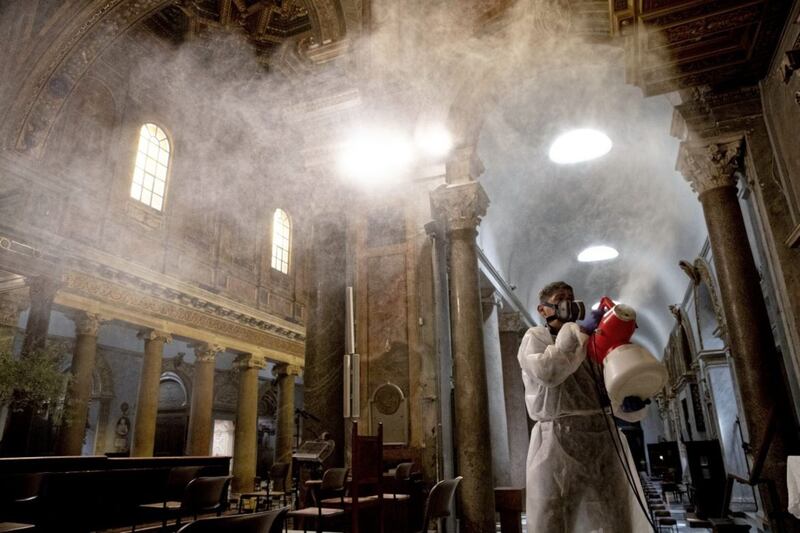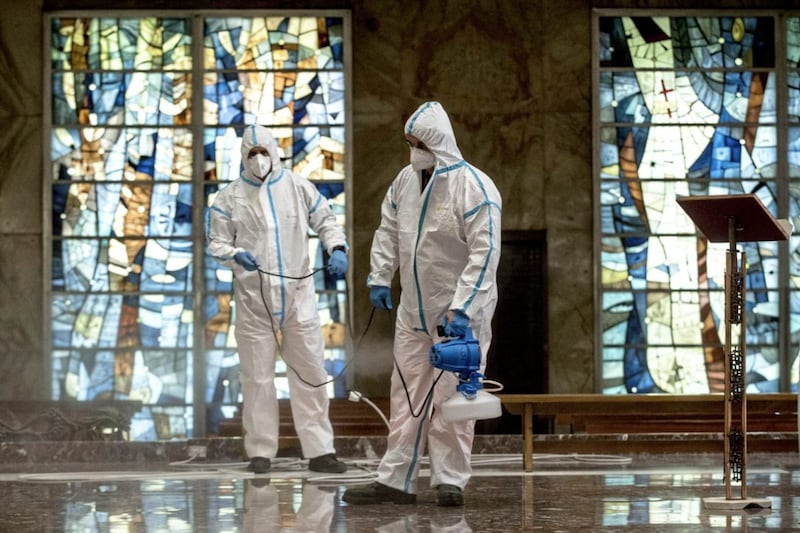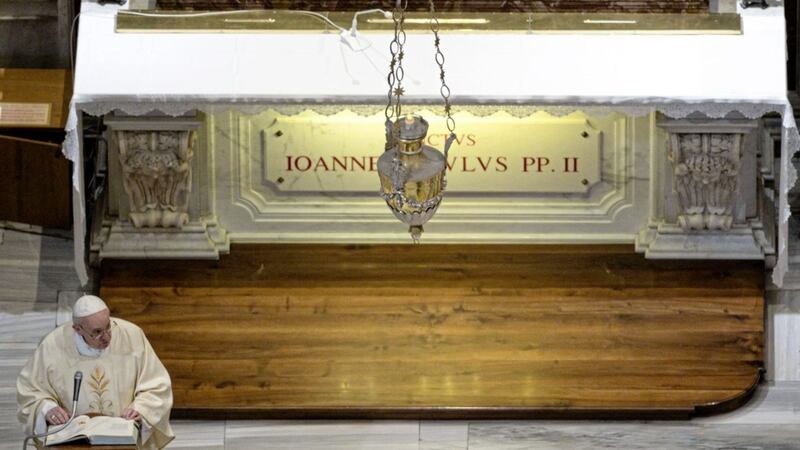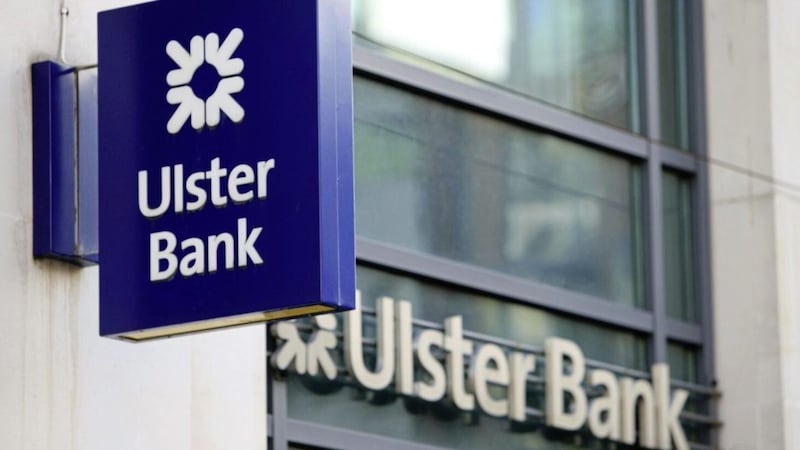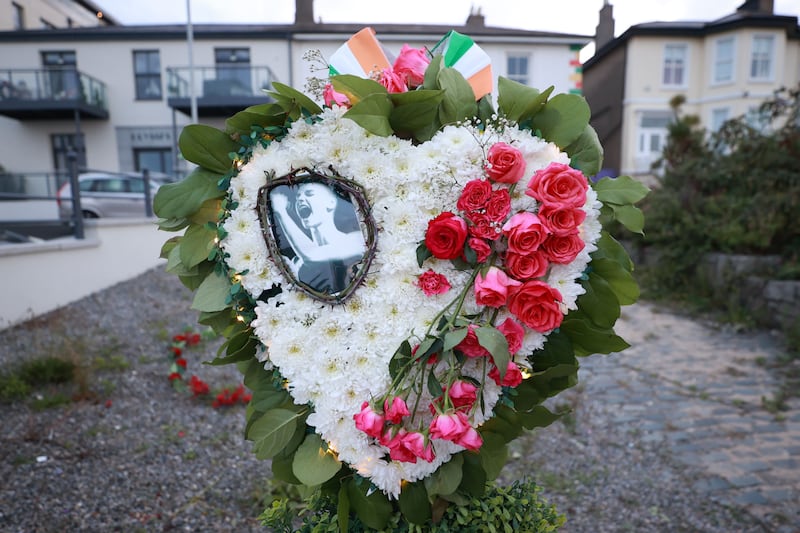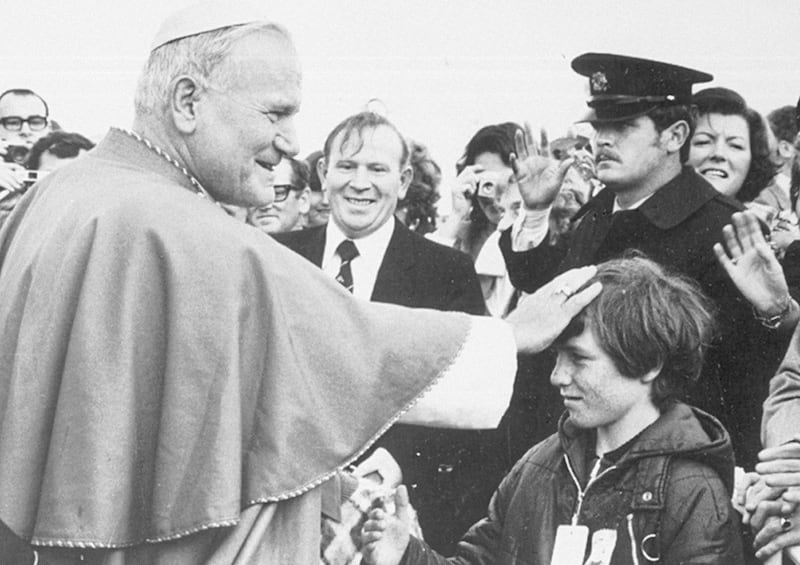
THIS week marked the centenary of the birth of Karol Wojtyla, who as Pope John Paul II became one of the towering figures of the 20th century.
Born in Wadowice, Poland on May 18 1920, he was elected Pope in 1978, 'the year of three Popes'.
By the time of his death in April 2005, he had visited 129 countries, included a celebrated pilgrimage to Ireland in 1979.
His influence transcended the Catholic Church, and he is widely credited as being a catalyst for the collapse of communism in Eastern Europe.
He was beatified by his successor, Pope Benedict XVI, in 2011 and canonised in 2014 by Pope Francis.
The centenary coincided with the easing of some coronavirus restrictions around public worship in churches in Italy, and on Monday Francis was able to celebrate Mass in St Peter's Basilica at the altar where St John Paul II is buried.
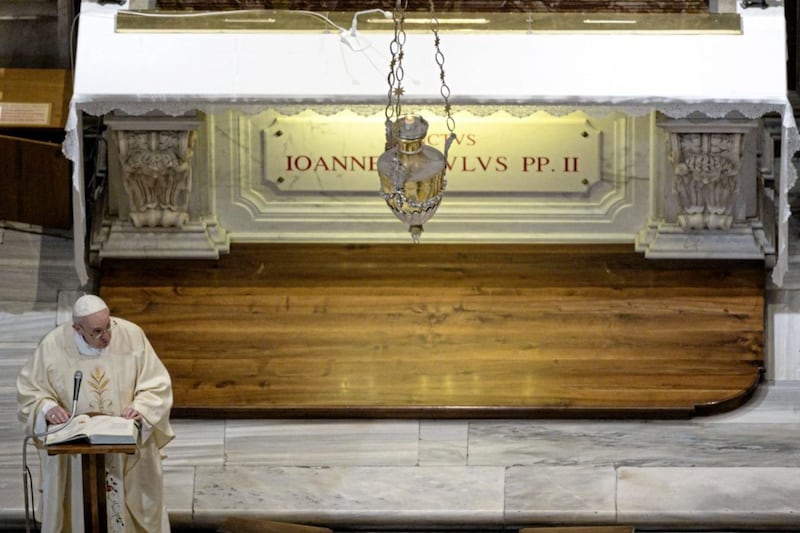
It was the first Mass open to the public - albeit a very small congregation because of social distancing measures - in the vast basilica after almost two months of Covid-19 lockdown.
Pope Francis said his predecessor was a man of prayer, who was close to the people and committed to justice.
Francis also sent blessings to the new St John Paul II Institute of Culture which has been established within the philosophy department at Rome's Pontifical University of St Thomas Aquinas.
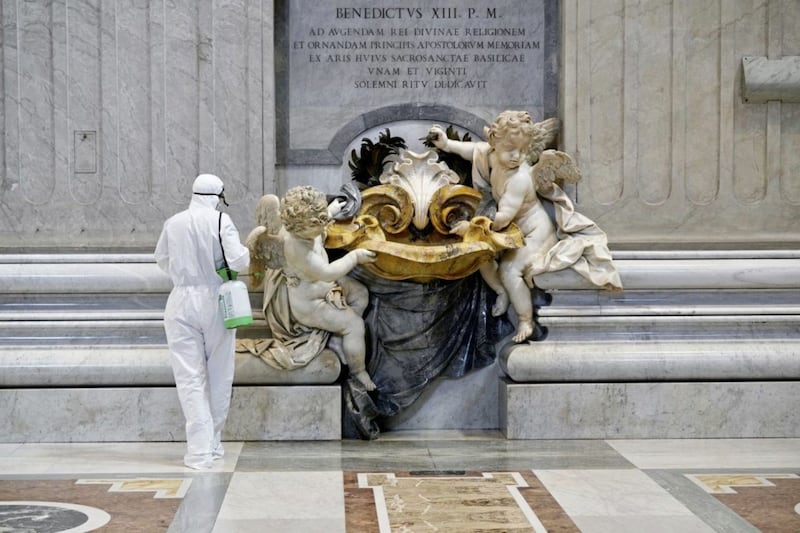
The university, also known as the Angelicum, counts John Paul II as its most celebrated alumnus.
In a letter to Fr Michal Paluch OP, the Angelicum's rector, Pope Francis said the new institute's aim was "to reflect on contemporary culture" - a preoccupation of John Paul II.
"To do so, the organisers intend to seek the collaboration of eminent philosophers, theologians and men and women of culture in its broadest sense," he said.
"St John Paul II is at once both the inspiration behind this project and its first and most important architect.
"This is thanks to the rich and multifaceted heritage that he left to us, and even more so by the example of his open and contemplative spirit, his passion for God and man, for creation, history and art.
"The range of experiences that marked his life, especially the momentous historical events and the personal sufferings that he sought to interpret in the light of the Spirit, led St John Paul II to an even deeper reflection on man and his cultural roots as an essential reference point for every proclamation of the Gospel."
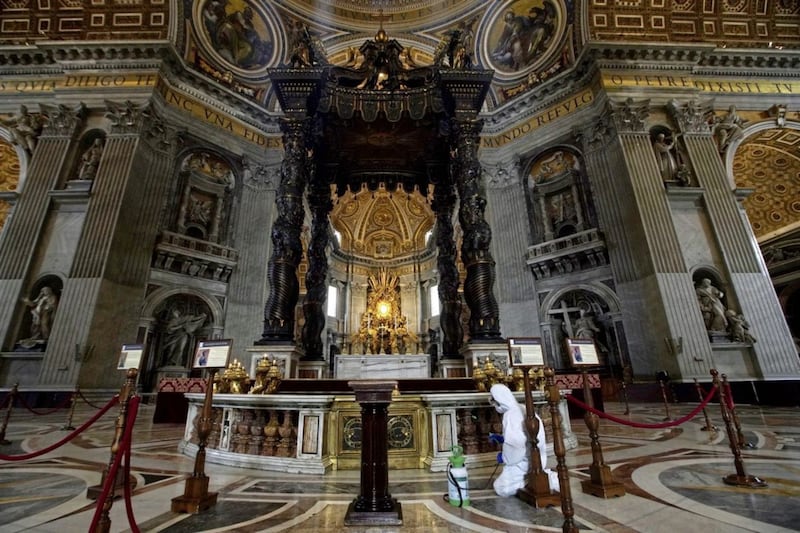
Pope Francis noted that in his first encyclical, Redemptor Hominis, John Paul II had emphasised how the Church was called to "approach all cultures, all ideological concepts, all people of good will".
"We approach them with the esteem, respect and discernment that since the time of the Apostles has marked the missionary attitude, the attitude of the missionary," said Pope John Paul II.
"Suffice it to mention St Paul and, for instance, his address in the Areopagus at Athens.
"The missionary attitude always begins with a feeling of deep esteem for 'what is in man', for what man has himself worked out in the depths of his spirit concerning the most profound and important problems.
"It is a question of respecting everything that has been brought about in him by the Spirit, which 'blows where it wills'."
The call of Pope John Paul II was for the Church to be outward-looking, said Francis, "not satisfied with preserving and administering what already exists but seeking to be faithful to our mission".
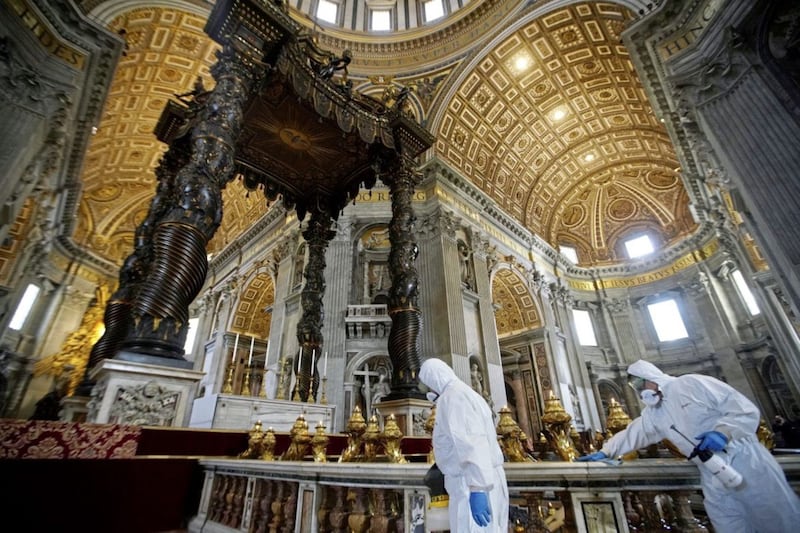
Those who attended the Mass in St Peter's Basilica had their temperatures taken as they arrived by stewards wearing protective suits - one of a number of measures being taken to allow collective worship and Mass to resume.
"Please, let us go ahead with the rules, the prescriptions they give us, so as to protect the health of each person and of the people," said Pope Francis of the public health rules.
Churches throughout Italy are also subject to rigorous cleaning programmes backed up liberal sprayings of disinfectant - a prelude, perhaps, of what lies ahead when public worship resumes in Ireland.
